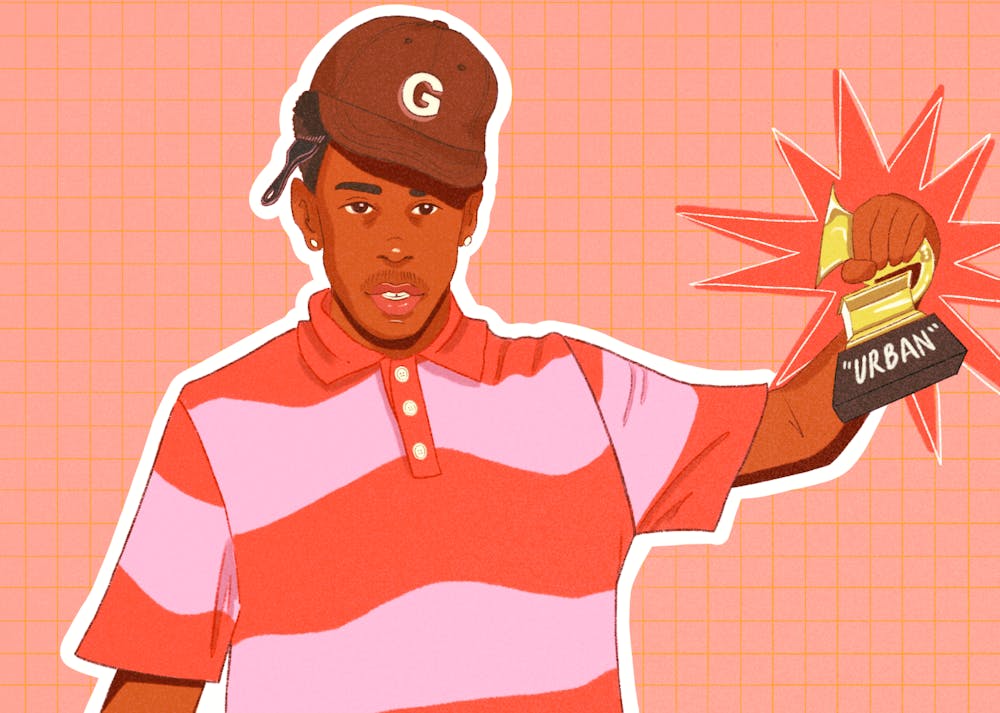Tempe-based artist Tireek Cody isn't just a rapper, but when he released a pop song, he said he "got criticism for branching outside of the rap bubble."
Cody, an up-and-coming Black artist, said he feels the pressure to choose creativity and experimentation over success through what’s typically expected of Black artists.
"Even within smaller music communities, Black artists are put into boxes and not allowed to experiment — it holds us back," Cody said. "I feel like trying new things helps you grow, and it shouldn’t be discouraged."
This pigeonholing isn't uncommon, said Rashad Shabazz, associate professor of African and African American Studies.
“To get out of the box, you have to create and augment your own sound,” Shabazz said. “Black artists will create pop, alternative, rock, but those areas are seen as the domain of white artists. White artists have latitude with what they can do musically. Black artists are confined to the predetermined boundaries.”
Black culture in music runs deep — so much so that there would be no modern music without it. From jazz and blues to hip-hop and rap, Black culture has created the foundation for the current music industry.
“Western modern music today is undergirded with Black musical features,” Shabazz said. “Chord progression, harmonies, the way modern music is created, it's all based on forms of music that were created by blues and early Black music.”
It has embedded itself into every music category — Rock ‘n’ roll would not be what it is without the deep South blues genre, and many of the icons of early country music were shaped by Black mentors.
“Black music is the backbone of all genres, the blood that runs through it,” Shabazz said. “However, the way in which Black artists are racialized denies them the ability to identify outside of predetermined 'Black' categories. Hip-hop, rhythm & blues, rap: that’s where the music industry sees Black music.”
Black artists create music that falls outside of these boundaries, but the surface-level categorizations often leave experimental albums in genres where they don't belong.
Last year, Tyler, The Creator addressed this concern after winning Best Rap Album.
"IGOR," the Grammy-winning album, was widely acknowledged as experimental and did not fall into the artist's usual genre of rap. The lack of cognizance toward the nature of "IGOR" highlights the discouragement Black artists feel toward growing and making their own way in the music industry.
“Defining Black artists with only three genres fails to capture what their music is on a holistic level,” Shabazz said. “It does a disservice to the profound diversity that Black musicians produce.”
Lil Nas X's "Old Town Road," which was pegged as rap, country and pop, created instant controversy as it was removed from the country music charts for supposedly not exhibiting enough elements to be considered a country song.
The gatekeeping of the country charts toward a song which clearly fit the genre — albeit with trap elements — garnered a large conversation about racism within country music and furthered the idea of marginalization of Black artists.
Even Cody, whose platform "isn’t as big as Grammy-nominated artists," experiences similar levels of pushback.
“Getting trapped in these bubbles causes artists to lose sight of why they make music and have to resort to focusing on the business side of music to succeed,” he said. “Hip-hop gave Black artists a platform to express themselves and stand out in the music scene — It has my heart. I make that type of music because I love it personally, not because of who I am physically," Cody said. "And it shouldn’t define anyone. Anyone should be given the chance to experiment without preconceived notions of who they should be, especially today’s Black creatives."
Reach the reporter at jecote@asu.edu and follow @jillianecote on Twitter.
Like The State Press on Facebook and follow @statepress on Twitter.
Continue supporting student journalism and donate to The State Press today.




